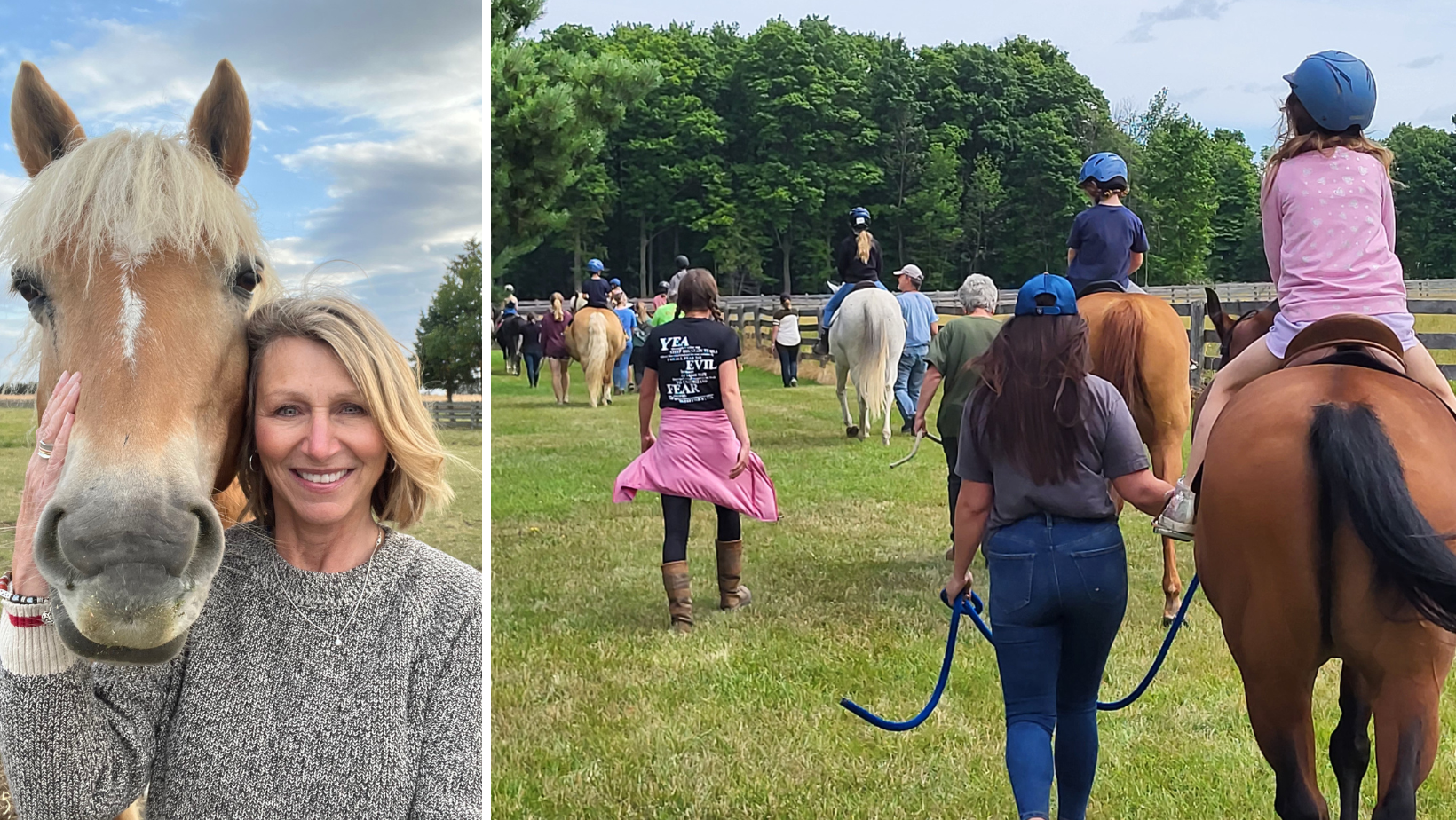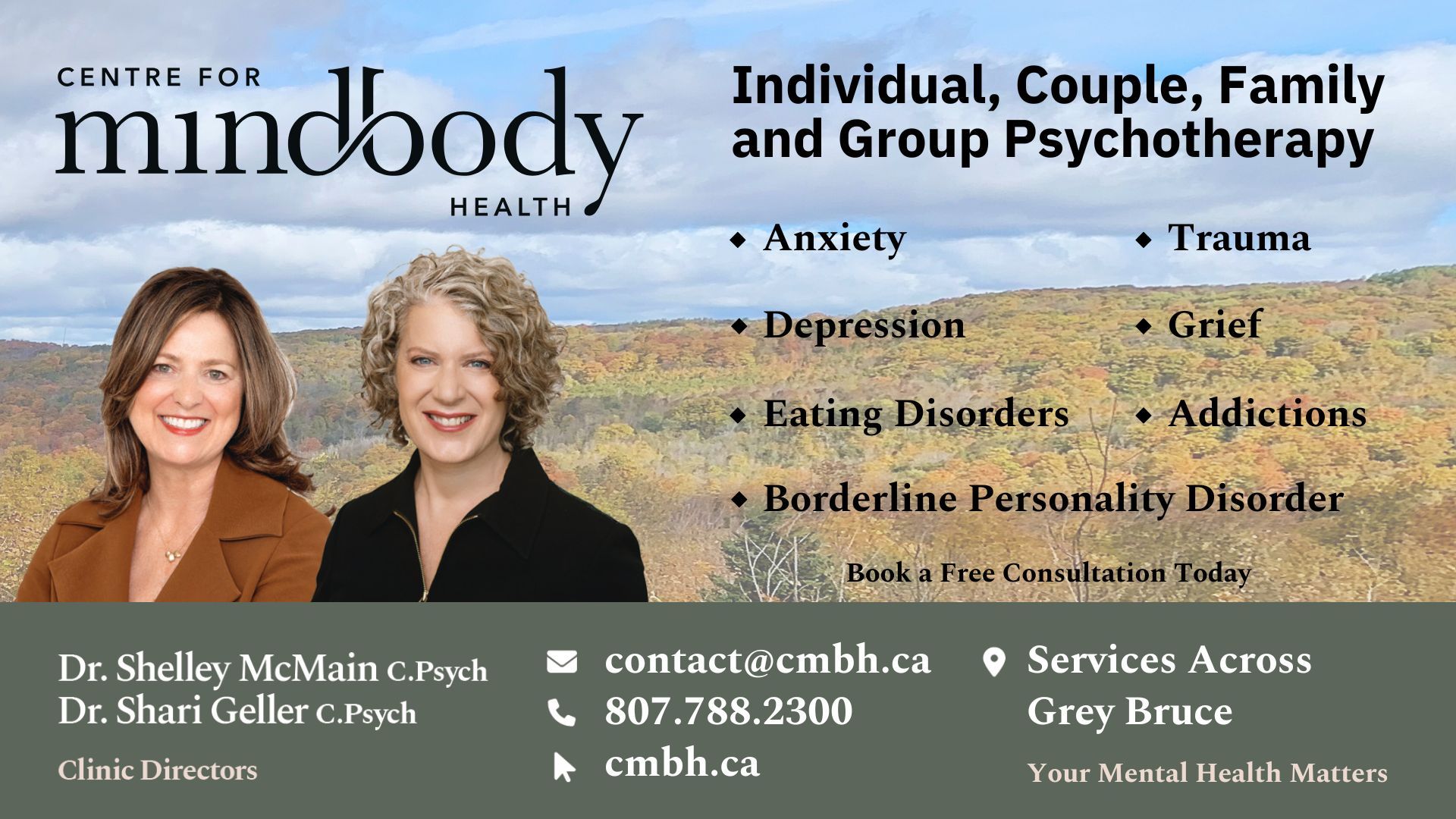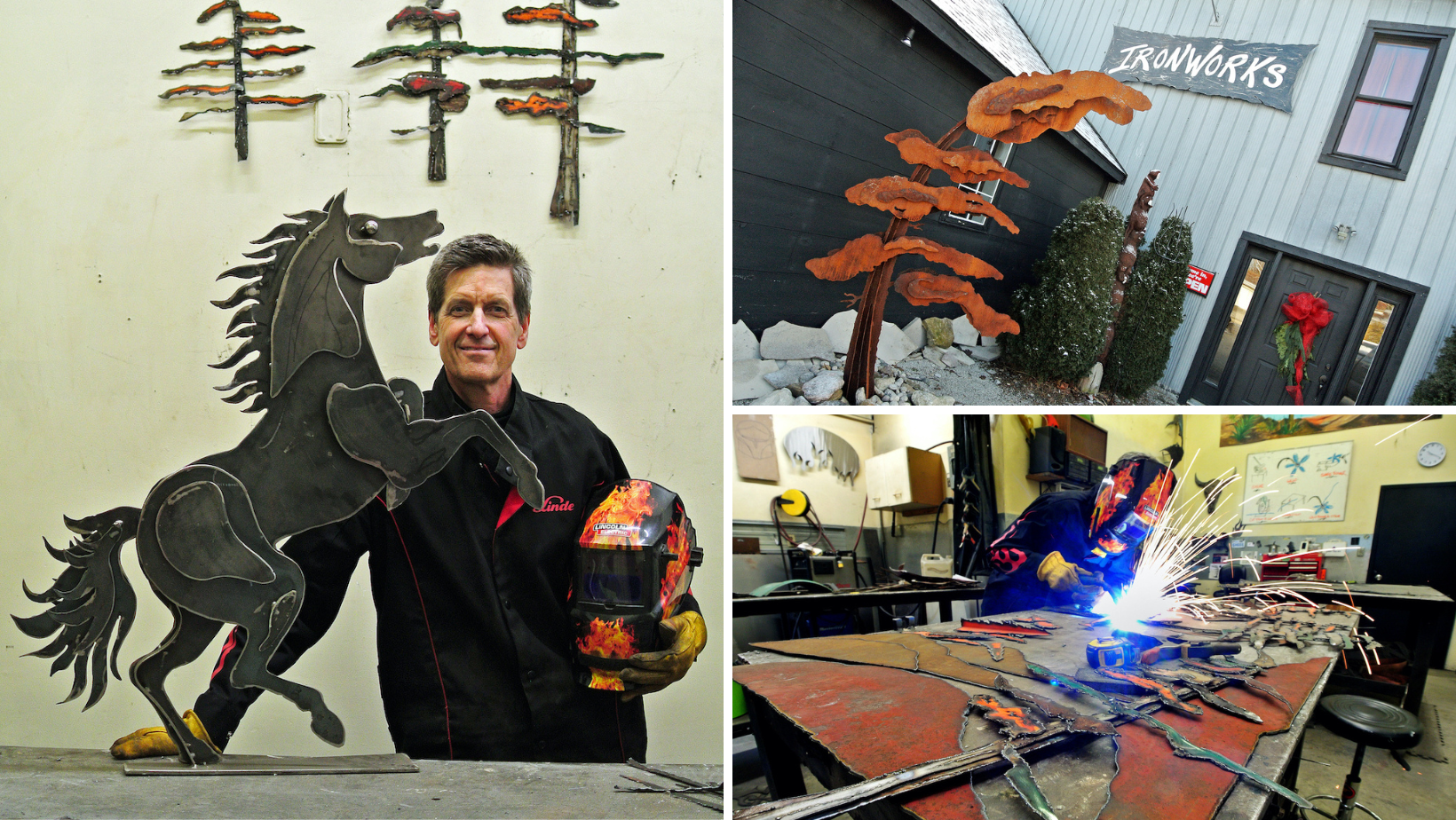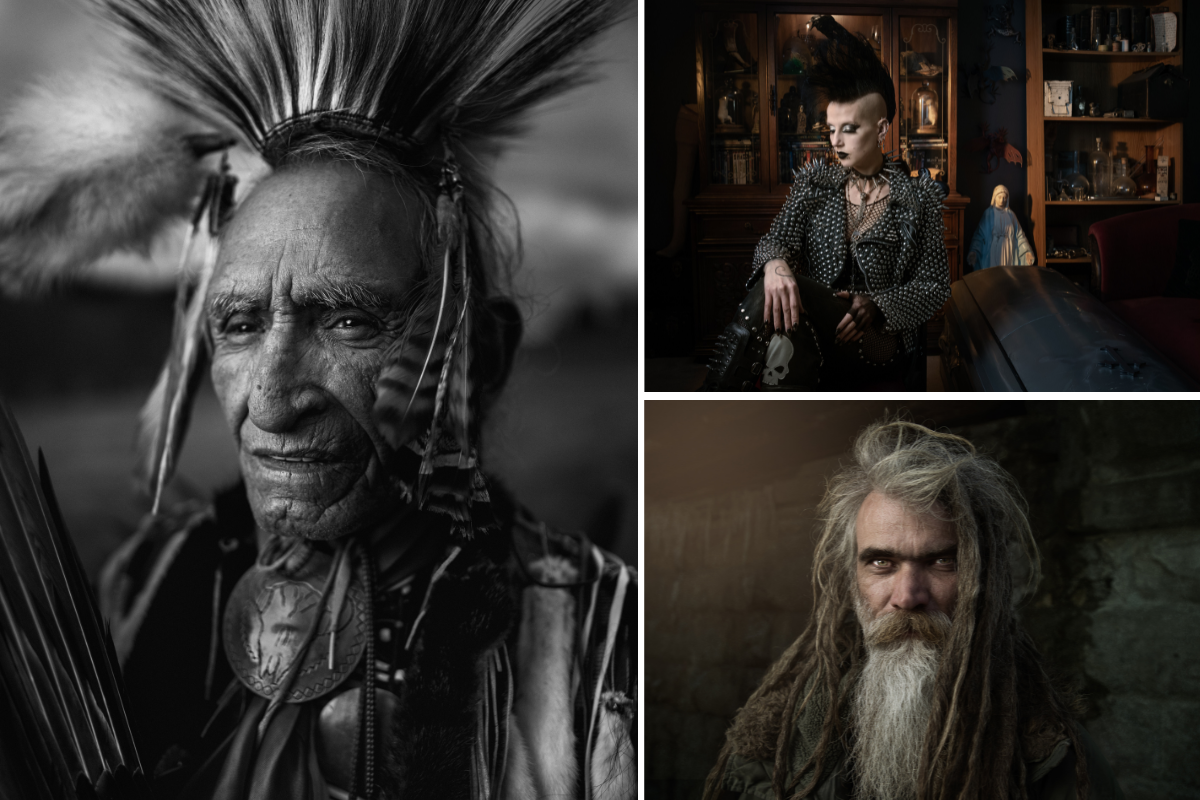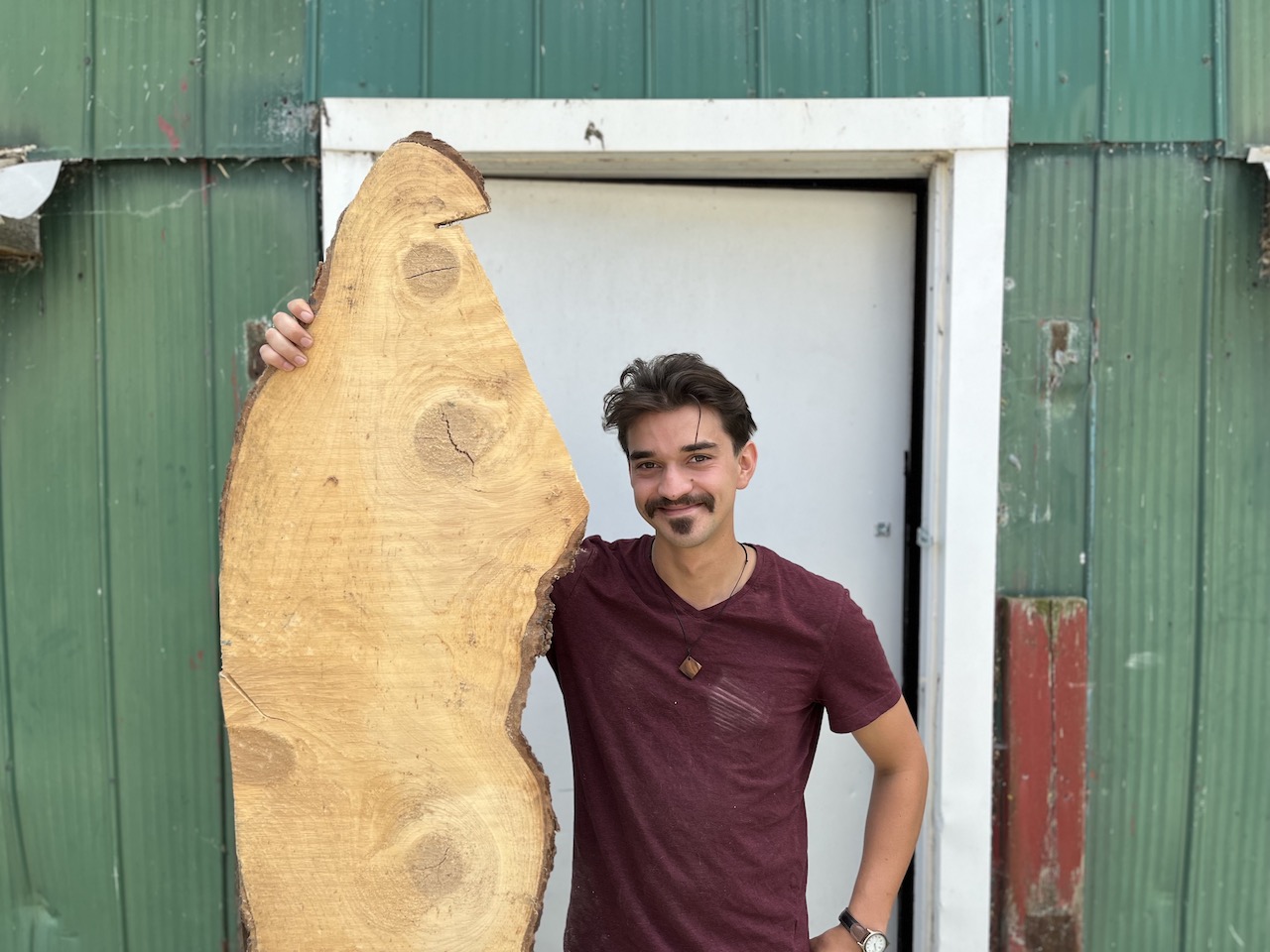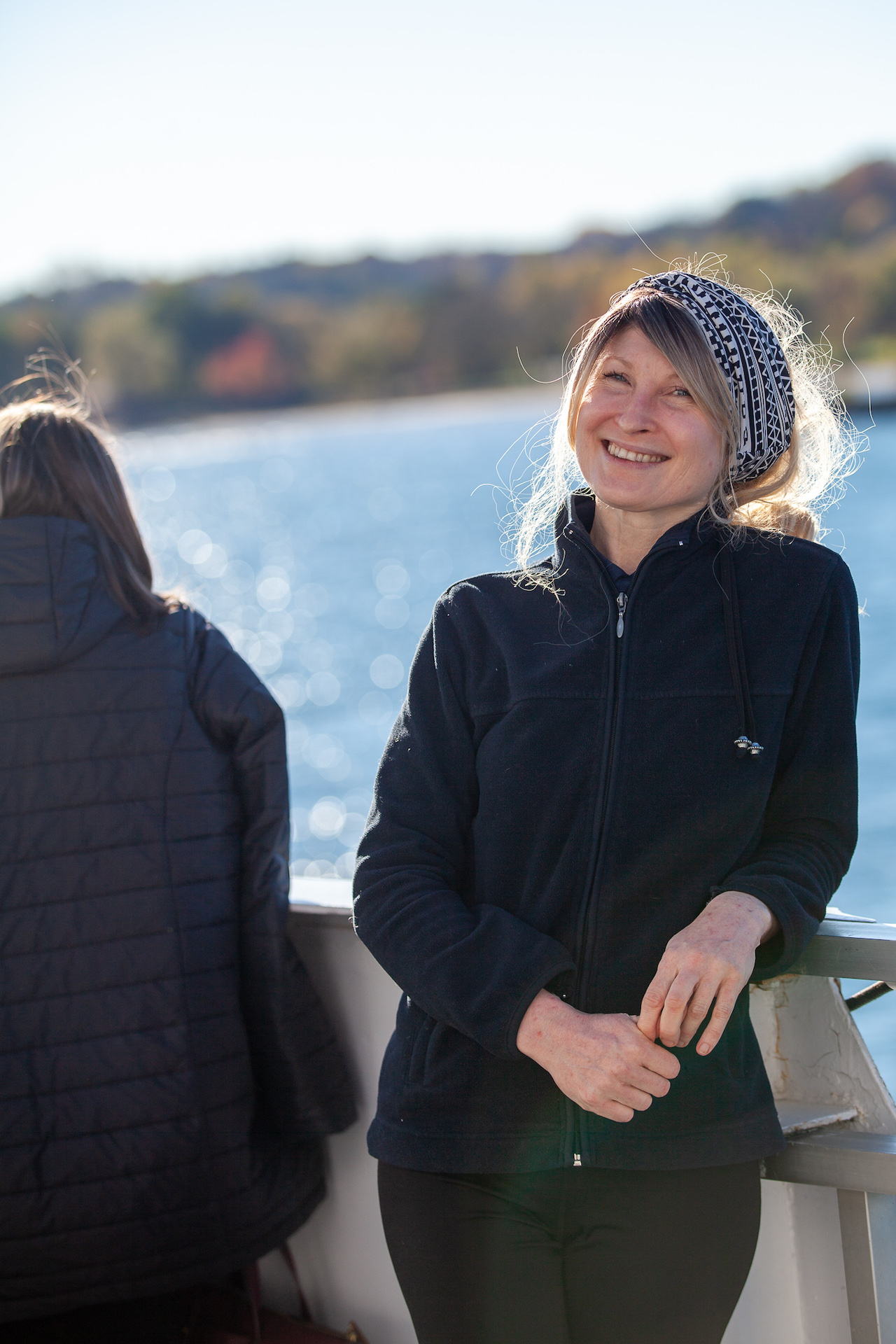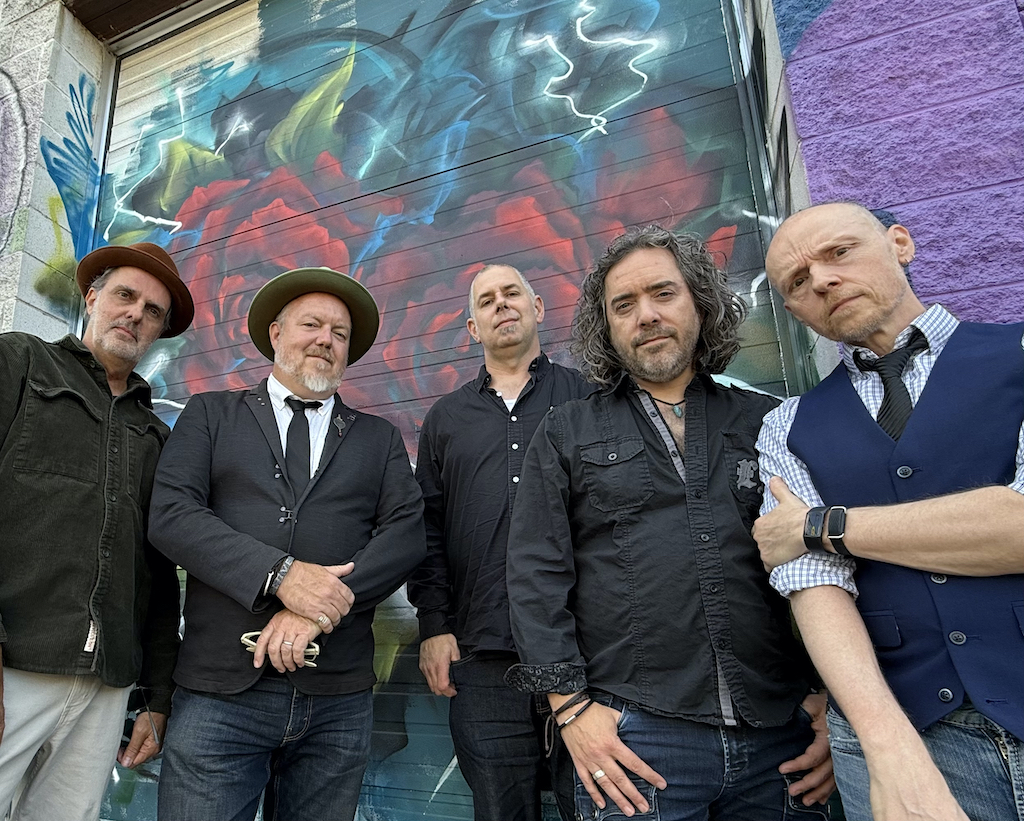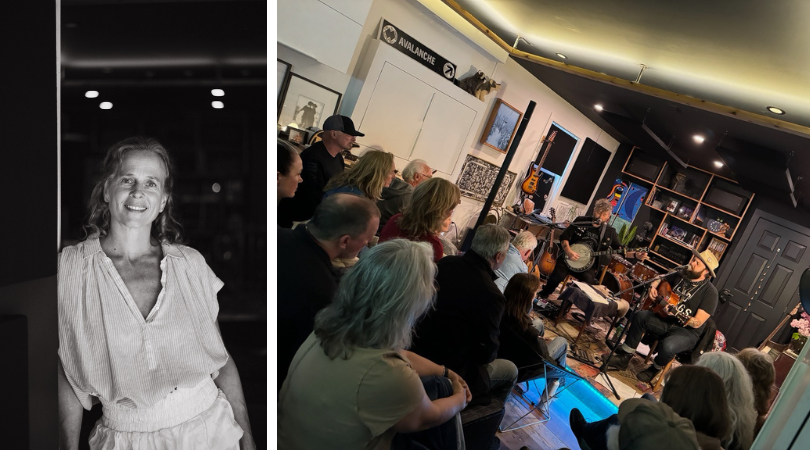“Wait! What? Horses can help with mental health?”
Oh yeah, they can – it’s called Equine Assisted Therapy and it’s a model of psychotherapy that builds on the horse-human connection to help with recovery from trauma, depression, anxiety, disordered eating, and relationships. It can also improve self-esteem, personal awareness, and communication.
Talk about horse-power.
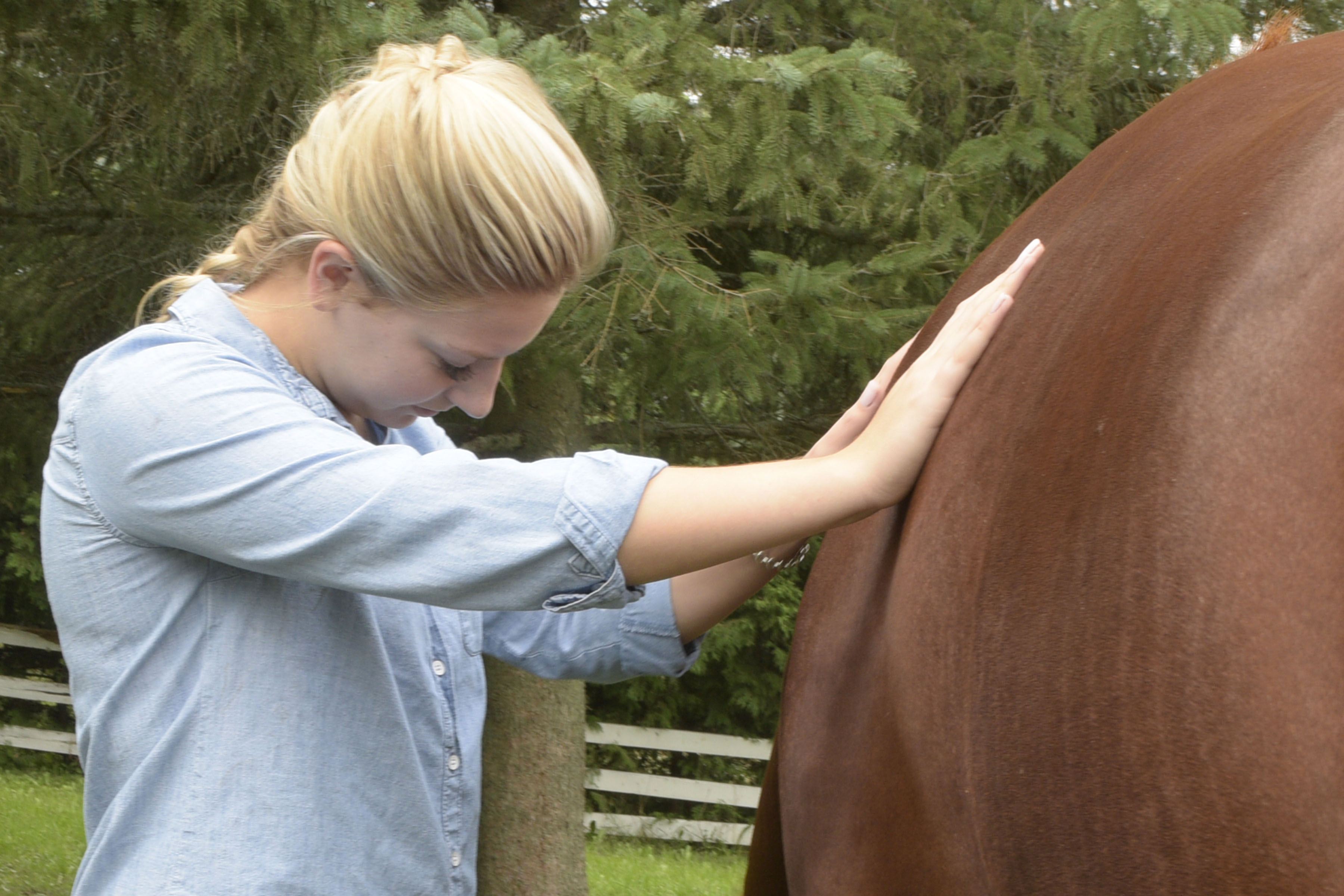
There is mounting evidence in favour of this alternative to ‘talk-therapy.’ It involves no riding or previous horse experience, making it both safe and effective. Clients work directly with horses on the same footing enabling them to better perceive the horses’ actions and reactions as they work to process and resolve their life challenges, and move through, or around obstacles and barriers in their lives.
Horses are living, breathing biofeedback machines and use their innate survival skills as prey animals to feel, read, and reflect the emotional energy emitted by the humans around them. They provide a non-judgemental, safe space for people to work through experiences effectively and with greater meaning than traditional talk-therapies.



So where in Bruce and Grey Counties can you find this unique form of therapy? Prance – Therapeutic Equestrian Centre is nestled among acres of Lake Huron wooded trails and green pastures right off Highway #21 on the outskirts of Port Elgin. The centre was established in 1993 by Brad and Kathy Pryde, they had a dream of creating a therapeutic riding facility that would provide people with physical and cognitive challenges the opportunity to ride horses. As a registered charity, its board of directors is dedicated to a collaborative model that connects individuals with horses, a licensed mental health professional, and an equine specialist. Most sessions involve one to three horses which provide in-the-moment experiences that promote healing for a wide variety of emotional, mental health and traumatic events. It’s based on the connection, trust, and relationship that horses are able to access, reflect, challenge, mirror or validate in a safe and supportive environment.

Because horses are prey animals, their primary focus is safety from predator animals and danger. Their senses are highly attuned to their environments and the energy around them. They pick up the kinetic energy that humans experience in the moment, and they mirror or model what is necessary to keep them safe, comfortable, avoid or move away from, or toward if needed. They are also herd animals and their social connection with other horses in the herd is an important part of their survival. The equine specialist in the session brings awareness to the horses’ actions and this provides metaphor and context for discussion, awareness, and insights. Through horses’ immediate and clear feedback, humans can work through painful memories of being hurt, shamed, mistreated, and misunderstood, and create new pathways to recognize in themselves how these issues show up in their lives.
Equine Assisted Therapy integrates several psychotherapy models such as Cognitive Behavioural Therapy (CBT), Mindfulness Based Stress Reduction (MBSR), Somatic Experiencing and Narrative Based Therapy to name a few. A skilled and certified mental health therapist facilitates the experiences of the horses and human in the moment, to provide real-time observations, feedback, ideas and metaphors for connection to the person’s own life.
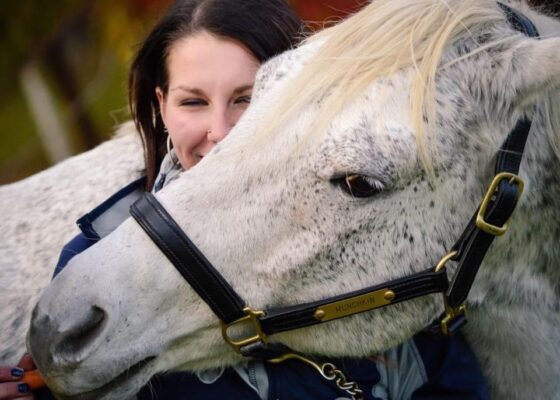
‘Discover your horse power’ is a theme that embodies the Equine Facilitated Wellness Program at Prance, which is the only certified Equine Assisted Therapy Program in Bruce and Grey Counties. It includes both individual sessions and team building and group activities. Over the past several years, group sessions have been booked for school events, corporate team building events, specialized programs for First Nations Youth, Women’s Empowerment groups, and several specialized programs for First Responders through Badge of Life Canada, to name a few.
Because the therapists leading the equine therapy sessions are licensed and certified mental health therapists, the cost of the sessions can be covered by most health benefits and insurance companies. In addition, Veterans Affairs Canada supports their members attending equine assisted therapy for treatment of PTSD. Health Canada also recognizes equine therapy and will provide coverage for anyone who holds Native Status. Prance has an established relationship with Victims Services, Canadian Mental Health Association and Violence Against Women services. Because of this, grants have been obtained which can support sessions for most people who do not have the means to pay for equine therapy out of pocket.
Now in its 30th year, Prance has provided therapeutic riding experiences to hundreds of people, with the dedicated involvement of countless volunteers to support and guide the process. If you want to discover this horse power for yourself, contact the team at prance@bmts.com.
Words by Ashley Baldwin
Photos provided by PRANCE

